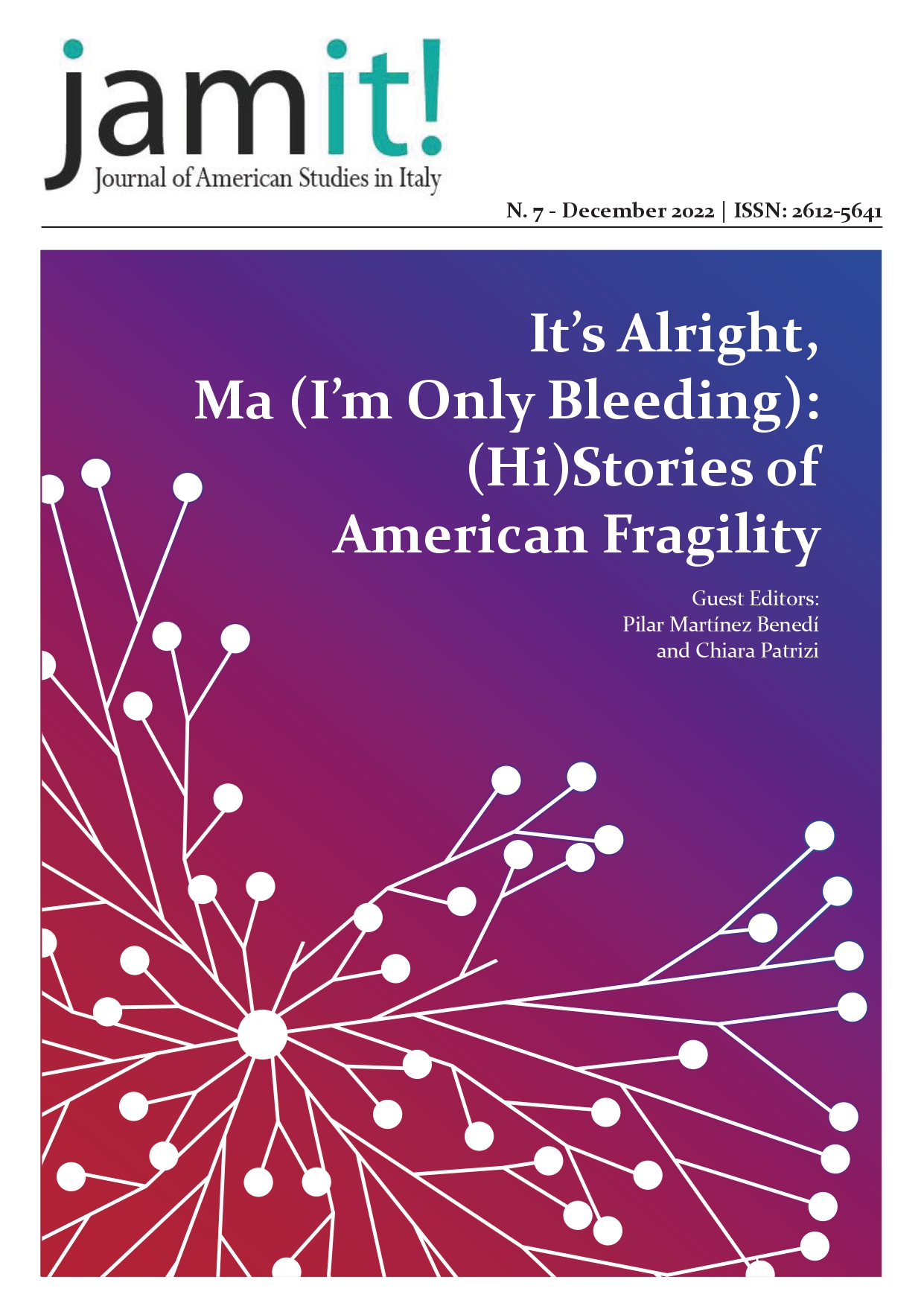The Discourse of Black Fragility in a Divided Public Sphere
DOI :
https://doi.org/10.13135/2612-5641/6660Mots-clés :
social imaginary, race, public sphere, normativityRésumé
The expression of fragility has always been a difficult and complex matter for African Americans, for the discourse of mainstream media is set up to sustain their fragility while at the same time misrecognizing it. Even though the black public sphere split off from the dominant public sphere after the Civil War to enable distinctive forms of expression, the “practiced habits” of which Coates speaks continued in the structures of the dominant discourse. My essay will analyze the structure of America’s indifference to fragility in three parts. In the first section, I will introduce a normative problematic that can track how the hegemonic public sphere uses the rhetoric of formal equality to subordinate and silence African Americans speech while it also opens a space for black speech to be heard rather than dismissed. I then will trace the silencing structures back to the Brown v. Board of Education Supreme Court decision of 1954, for this “progressive” decision provided a template for what can be said and cannot be said. The next second section examines how Ralph Ellison thematizes and revises the encounter between the black and dominant public spheres. In the last section of the essay, I analyze the ways that Ta-Nehisi Coates exposes the contemporary forms of these discursive structures.
Téléchargements
Publiée
Numéro
Rubrique
Licence
Authors who publish with this journal agree to the following terms:
- Authors retain the copyright and full publishing rights for their submissions to the journal.
- Authors grant the journal right of first publication with the work simultaneously licensed under a Creative Commons Attribution-NonCommercial-NoDerivatives 4.0 International License that allows others to share unedited work for non-commercial purposes with an acknowledgement of the work's authorship and initial publication in this journal.
- Authors are able to enter into separate, additional contractual arrangements for the non-exclusive distribution of the journal's published version of the work (e.g., post it to an institutional repository or publish it in a book), with an acknowledgement of its initial publication in this journal.
- Authors are permitted and encouraged to post their work online (e.g., in institutional repositories or on their website) prior to and during the submission process, as it can lead to productive exchanges, as well as earlier and greater citation of published work (See The Effect of Open Access).




